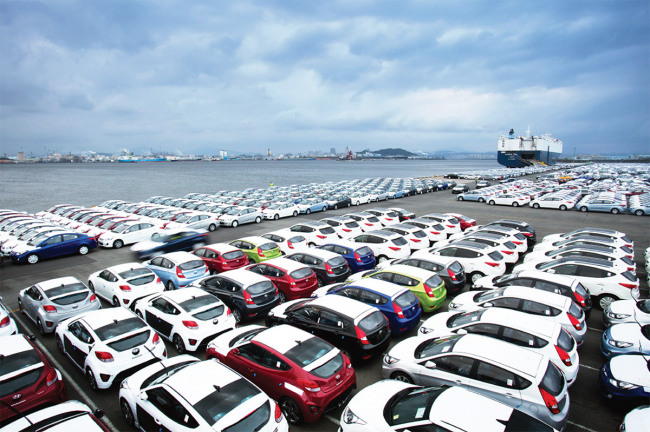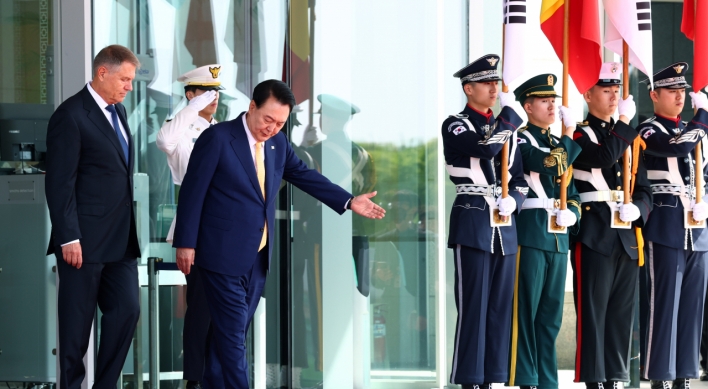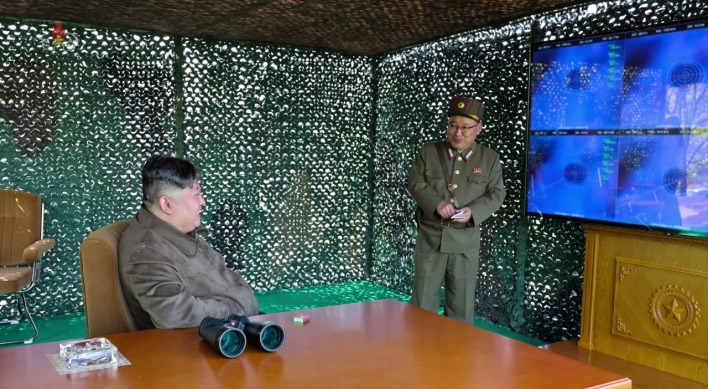[THE INVESTOR] The South Korean government is considering intervening in Hyundai Motor’s labor strike, as a new wave of labor actions might put more stress on the country’s already-slowing economy.
“Given its impact on the broader industry and national economy, the government will consider all possible measures to put a swift end to the Hyundai Motor strike,” Labor Minister Lee Ki-kwon said Wednesday.
Unionized workers of Hyundai Motor, Korea’s largest carmaker, began their first full strike in 12 years Monday, after about 20 rounds of partial strikes during their months-long wage negotiations with the management.
“Given its impact on the broader industry and national economy, the government will consider all possible measures to put a swift end to the Hyundai Motor strike,” Labor Minister Lee Ki-kwon said Wednesday.
Unionized workers of Hyundai Motor, Korea’s largest carmaker, began their first full strike in 12 years Monday, after about 20 rounds of partial strikes during their months-long wage negotiations with the management.

“Damages from this drawn-out labor strife amount to 2.7 trillion won or 121,167 units of reduced car production,” the minister said, echoing the management’s claim. The full-scale stoppage is expected to result in damages of another 160 billion won ($144 million) or 7,200 units per day.
The minister stressed that losses were fast snowballing at small and medium-sized suppliers and contractors of Hyundai Motor, and this could hinder the economy’s fragile recovery.
The government last took an emergency mediation measure in 2005 when the pilots of the nation’s two flag carriers staged a joint strike. It had also intervened in a carmaker’s labor strife in 1993.
Labor unrest has spread across banks, public transport services and hospitals in South Korea over a planned merit-based pay system.
Wednesday was the second day of a joint walkout by rail and subway workers and the first for some 16 hospital workers, with an umbrella union group scheduled to show off their solidarity with a rally in Yeoiuido, Seoul, in the afternoon.
The rail and subway workers have united for the first joint action in 22 years in opposition against the pay scheme, which they claim will make dismissals easier.
Some 36 percent of the workers on duty joined the walkout Wednesday morning, but commuting during the peak hour was not severely affected, thanks to contingency measures drawn up by the management in advance. But freight services face major disruptions across the country, with cargo terminals in the southeastern part of the country reporting a cut of nearly 70 percent in the number of cargo train arrivals and departures.
The number of trains being operated to ship cement from Taebaek in Gangwon Province fell from 30 per day to 14.
Unionized workers at some state-run hospitals also decided to join the walkout.
Performance-based pay, an election campaign pledge of President Park Geun-hye, is being pushed for all public-sector workers, whose compensation levels are currently based on seniority.
Last week, bank workers went on strike for the same reason.
The workers on strike have faced criticism that their actions are hurting the Korean economy’s competitiveness.
“They are being selfish to protect their vested interests. The ongoing strikes will earn no public support, only disdain,” Finance Minister Yoo Il-ho said at a Cabinet meeting.
By Lee Sun-young/The Korea Herald (milaya@heraldcorp.com)


![[AtoZ into Korean mind] Humor in Korea: Navigating the line between what's funny and not](http://res.heraldm.com/phpwas/restmb_idxmake.php?idx=644&simg=/content/image/2024/04/22/20240422050642_0.jpg&u=)



![[Herald Interview] Why Toss invited hackers to penetrate its system](http://res.heraldm.com/phpwas/restmb_idxmake.php?idx=644&simg=/content/image/2024/04/22/20240422050569_0.jpg&u=20240422150649)

![[Graphic News] 77% of young Koreans still financially dependent](http://res.heraldm.com/phpwas/restmb_idxmake.php?idx=644&simg=/content/image/2024/04/22/20240422050762_0.gif&u=)





![[Exclusive] Korean military set to ban iPhones over 'security' concerns](http://res.heraldm.com/phpwas/restmb_idxmake.php?idx=652&simg=/content/image/2024/04/23/20240423050599_0.jpg&u=)



